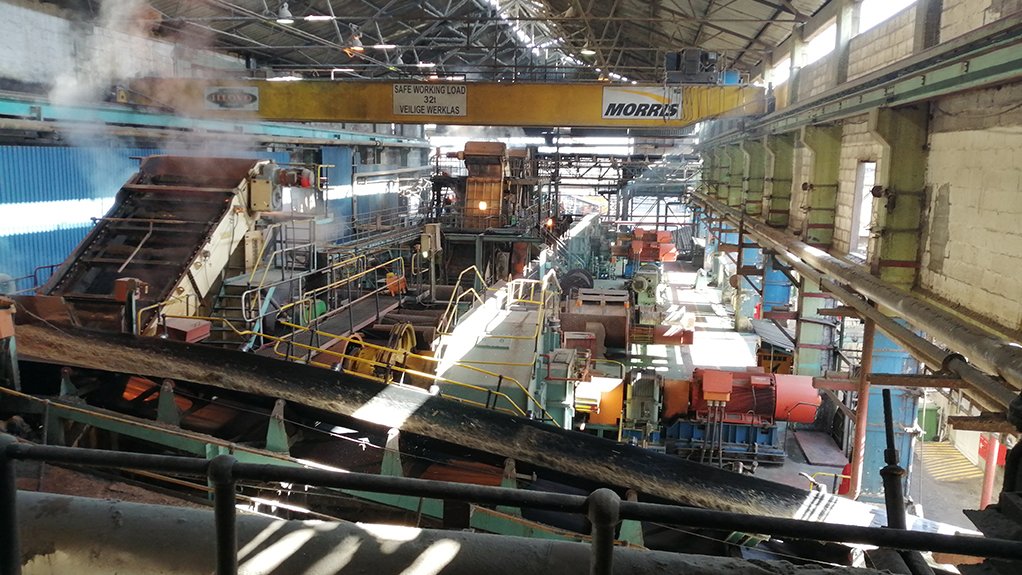With more than 60 years of servicing the sugar industry, power transmission products distributor Bearings International (BI) has gained meaningful expertise, which enables the company to continue being a “dependable supplier” in the industry.
Among BI’s main clients in the sugar industry are some of South Africa’s sugar industry majors, as well as other sugar mills in sub-Saharan Africa.
“We supply the complete drive chain – from the feeder tables where the sugar cane arrives from the farm to the pack house where the product gets distributed,” says BI product manager Matthew Tyler.
He adds that, as sugar mills stop crushing for about four months at the end of every year, it is during that time that the mills need to be stripped, repaired and replaced to ensure that what is required for the season is in place when they start to crush.
“Sugar mills want quality products at a reasonable price. They place a special emphasis on products that will prevent breakdowns during the crushing season, as any component that fails could stop full production if it is in a critical application,” Tyler explains.
During the off-crop season, the sugar mills send chains to BI’s facility in Durban, KwaZulu-Natal, where the company conducts the stripping, inspection, refurbishment and reassembly of chains, BI Durban sugar chain branch manager Nick Allanson tells Engineering News.
“While there are no specific on-site projects that we do, we conduct on-site inspections of the chain conveyor equipment so that we can assist the mill in deciding whether a particular chain can be used for the next season without putting production at risk,” he points out.
Notably, with health and safety legislation in the sugar industry being similar to that of other industrial sectors, Allanson advances that this makes working in the sugar industry as arduous as in other industries.
Tyler states that adhering to stringent health and safety controls is a pre-requisite for BI’s technical crews who work in several African mills.
“Our safety, health, environment and quality department carefully vets all BI employees and subcontractors prior to starting any work in the sugar industry, as well as other industries that we work in,” he adds.
Product Offering
Tyler oversees the company’s Cooper split bearings, Masta Housings and Koyo bearings.
He mentions that a lot of sugar mills in Southern Africa were designed and built in the UK. Therefore, the bulk of these mills use Cooper split bearings, representing a major market for BI in terms of maintenance and upgrades.
BI has supplied Cooper bearings for more than 80 years to every mill it services in Africa, says Tyler.
He adds that the advantage of the split bearing is the quick replacement time if there is a failure during the crushing season.
For instance, the auxiliary equipment, such as motors, gearboxes and couplings, does not have to be removed to change a split bearing, compared to changing a solid bearing.
“Owing to the long service life achieved with the Cooper bearings, many of the sugar mills replaced their existing bearings with them and, additionally, used these bearings for other applications. Their other advantage is the superior sealing options that are available,” Tyler tells Engineering News.
BI has converted many applications to use Cooper split bearings over the past 60 years. These applications include screw conveyors to move the refined sugar, cane knives and the main support bearings on the electric motor.
Further, the company also supplies heavy duty roller chains to the sugar industry. These chains provide superior strength, durability and endurance; and are designed for use in fields where applications require stronger chains.
BI is proud to have distributor agreements with manufacturers of heavy duty chains used in sugar factories, Allanson enthuses.
“As the distributor of various quality brands in the industrial power transmission sector, we can incorporate these quality products in the drive solutions that we provide for the industry.”
He highlights that, typically, the solutions provided by the company are associated with the conveyor equipment used to move the cane through all the processes required to extract the sucrose and, finally, the movement of ‘waste’ product that is used as a combustible fuel source in the boilers.
The dynamic nature of mill operations makes many of their processes interdependent because without reliable conveyor systems, there will be production stoppages which, in turn, will result in a knock-on effect throughout the entire sugar mill, bringing it to a complete standstill, Allanson emphasises.
Further, the company aims to remain the preferred partner for sugar mills globally.
“We want to grow our bearings and transmission range beyond the sugar industry. We have a specialised range of bearings that have also had a great impact on production processes in industry,” he enthuses.
Added to that is the company’s supply of couplings, electric motors and belting gearboxes that are also used in sugar mills.





